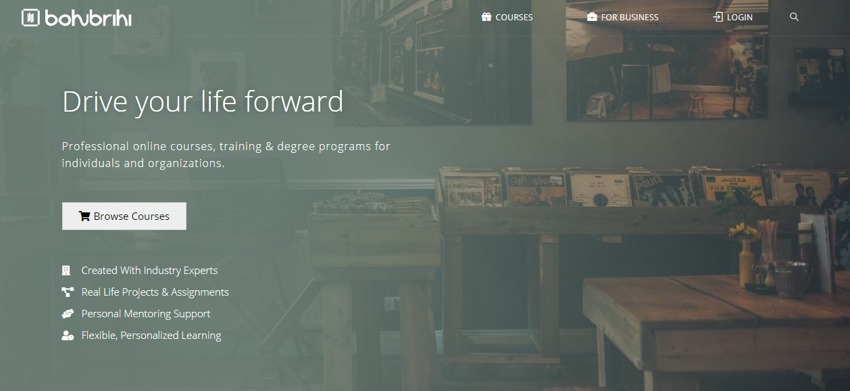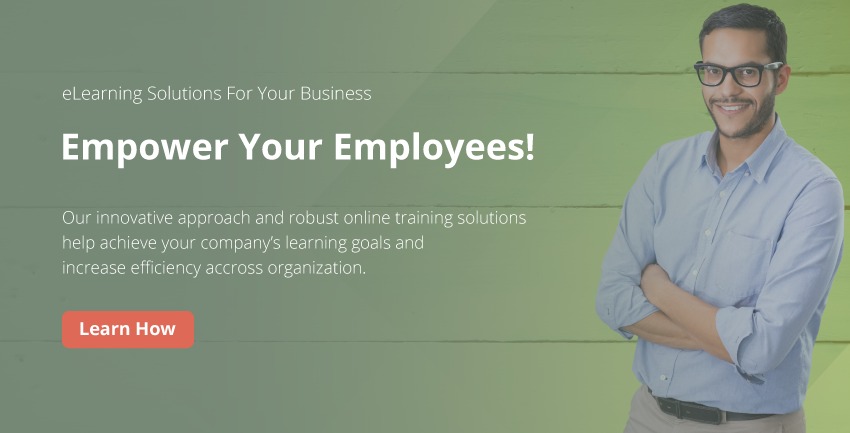
Co-founder and CEO of eLearning Marketplace startup Bohubrihi, Md Yanur Islam Piash, reflects on his entrepreneurial journey, talks about Bohubrihi, how Bohubrihi came into being, the challenges of eLearning in Bangladesh, how Bohubrihi operates, its business model and product details, the state of Bohubrihi’s business today, its ambition going forward, shares his thoughts on the challenges of being a founder, putting things on paper and journaling as an antidote to stress of building a business, the importance of talking to your customers while building a company and much more.
Future Startup
Could you please tell us about your background and elaborate your path to entrepreneurship?
Md Yanur Islam Piash
In 2015, I got into Chemical Engineering at BUET. My spirits and actions regarding business and entrepreneurship were inspired mostly by my surrounding community at my campus.
While in 2nd year, I started focusing on extra-curricular activities and eventually joined BUET Entrepreneurship Development Club. There I met people with diverse skillsets and provocative ideas. The environment, activities, and people of that community always encouraged me to think and act differently. I got hooked with that community, grew with it and eventually got the opportunity to lead it from the front. My whole journey with that club quietly grew my entrepreneurial mindset over the years.
Future Startup
When and how did you get started with Bohubrihi? What motivated you to start Bohubrihi?
Md Yanur Islam Piash
My classmate Galib (now my co-founder at Bohubrihi) introduced me to the world of Online Courses. Together we took many online courses at edX, Coursera, Lynda, and Udemy. I am talking about 2016; no Bangladeshi eLearning platform was particularly renowned for providing ‘online courses’ at the time.
The inadequacy of quality online courses, especially on advanced technical and engineering topics would bother us. We had to rely on foreign platforms - intended for foreign industry, created in foreign languages, to get a better learning experience. There was hardly any local platform that would allow us to dive deep into a topic and meet our expectations, or expectations of people around us. This, and the vision of implementing eLearning in Bangladeshi academia (inspired by Coursera and MITx) - these two things were the initial motivation that got us started.
But after three years, if you look around, the situation hasn’t improved. We have many more problems to address and more opportunities to explore than ever. We see several areas where eLearning will bring revolution in 5 to 8 years.
Anyway, I was talking about expectations. This expectation still drives us - when we design and create a new course, we try to realize whether or not that course will meet the expectations of smart and enthusiast people around us. We are striving to be a premium provider of online training - for ambitious youth, motivated learners and visionary organizations.
Future Startup
What went into building the initial operation of Bohubrihi? How did you put together initial investment and other things to get started? Please walk us through what the first few months of your journey were like and the challenges you faced.
Md Yanur Islam Piash
Skills and money both were scarce when we started. We gathered a team of 6-7 people - all are first and second-year students of my department! We started on the idea in late 2016, launched our beta website in late 2017 and started generating regular revenues from mid-2018.
Our initial investment was as little as 15,000 taka. I and Galib would bear the startup expenses with the money we would earn from tuitions. One of our angels first came up with help to initiate the website development work. We had to learn the development and then develop it. I took care of the development; Galib went on to creating courses.
2016-2017 was the toughest. We used to get frustrated sometimes, things would get stuck for financial constraints, progress slowed down, but we somehow managed to keep going anyway. Thanks to the people around me, I was attached to a few people who were also in the same stage with their startups. We would sit and share our frustration and somehow we would manage to find the motivation to keep on.
Things started to get easier as few people enrolled in our first course on WordPress. The confidence grew with the increasing number of courses and revenues.
On November 26, 2018, we launched a Cyber Monday campaign and offered a 50% discount on all courses, for a day. That day we were at our campus, attending our regular academic classes and sessionals, and we saw those bkash & rocket transaction alerts keep coming!
That one successful campaign completely changed our morale; we could now really believe in ourselves after almost 2 years of rewardless work. We didn’t have to hesitate since then.
Galib and I left our tuitions; I left my part-time job at a consultancy firm and started giving our full effort into Bohubrihi.
Future Startup
Could you please give us an overview of Bohubrihi in terms of services you offer, how many users you have, the size of your business, etc?
Md Yanur Islam Piash
Bohubrihi is an eLearning platform that offers online courses and training to professionals as well as university students. These courses are designed and offered in collaboration with industry experts and organizations in Bangladesh. In terms of course topics - technology and business are our primary focus. So far we have around two thousand students enrolled in 13 courses.
Recently, we have inaugurated our corporate eLearning services. We help organizations bring their internal Training & Development programs online. This involves the whole process - from creating learning materials to delivering them through our LMS and measuring impact with real-time analytics.

Future Startup
From a product perspective, how does Bohubrihi work as a platform? How do you work with your partners? How does the tech part work?
Md Yanur Islam Piash
Let me explain with an example. With support from the ICT Division, we are working on a project that involves creating online degree programs on 4 sophisticated tech topics. The purpose is to create a local workforce for the 4th industrial revolution (you may guess the topics).
This project involves 2 partners other than Bohubrihi: academia, and industry. University professors from DU and BUET are contributing to the making of these courses. And our industry partners will provide the top graduates with internship and job opportunities. Experts from the industry are contributing to course production as well.
We are partnering with companies like Brain Station 23. I would have been able to tell some specifics if this interview would happen a while later.
In our experience, it has been much easier to sell new courses to our existing users.
Future Startup
What is your business model? How have you grown your revenue?
Md Yanur Islam Piash
All of our revenue comes from the selling of online courses. People pay a one-time fee while enrolling in a course and get access to the materials and other support. The whole process works online through our website. For a brief period, we would sell DVDs (along with online access) on requests. But now we have stopped providing DVD support; this thing never excited us, and it doesn’t go with our philosophy about e-learning!
In the early days of Bohubrihi, we followed an open marketplace model (like Udemy). Any instructor/trainer could submit their courses and earn revenue on a commission basis. But gradually we learned that this is not a viable model in Bangladesh if we want to guarantee the quality. There are not so many independent instructors who are experts in their field as well as passionate (and good at) in creating courses on their own. There are a handful of those geniuses- but not sufficient to build a rich marketplace. Also as I said, the quality was a big big issue and this is one area we will not compromise ever.
We may have a minimum number of courses on our platform, but they must be unquestionably valuable! So we gradually took control of the production and looked away from the open marketplace idea. Instead of calling for open course submission, we started networking with experts and industry partners to work with us. And we have been quite successful in doing so. A lot of exciting courses are under production at this moment.
Future Startup
How big is your team? Could you tell us about your culture at Bohubrihi?
Md Yanur Islam Piash
We are two co-founders with a small team of 8 people. Few of them are part-timers, and few of them work on a project basis. Most of us are current or ex-students of BUET and DU. We’ve known each other for years, so the relationship is quite personal and easy among us.
We have four stakeholders in our company; three of them have seats on the board.
Future Startup
On average how many customers you serve per month? How have you attracted customers and grown Bohubrihi? Could you tell us about the strategies and activities that you carried out to achieve the growth?
Md Yanur Islam Piash
On average, around five hundred people are engaging with different courses each month on the Bohubrihi platform.
We are running display ads on Facebook and Google - not spending much though. Instead, we focus on creating free content that supplements our courses and creating a network effect within the platform.
In our experience, it has been much easier to sell new courses to our existing users. Also, many of our customers are here after being referred by existing users. So we are taking initiatives and creating campaigns that encourage existing customers to engage in more courses and refer their friends and colleagues to us.
We have been engaging with university clubs and campus events as ‘eLearning partners’ - this is helping us connect with a more active group of audience. But still, we are spending more resources on producing valuable courses, than in sales and promotion.

Future Startup
What are the lessons you’ve learned in terms of growing a business? What other entrepreneurs can learn from your growth journey?
Md Yanur Islam Piash
In terms of revenue and user base, our growth has been exponential in the last six months, and we did it without a significant rise in the sales budget. We have always been a positive cash flow company since launching. As I said, we give most of our efforts in creating useful courses.
We’ve grown so far mostly because we focus on the values; because our students can understand our values as well. Users don’t care about website/app features.
You can brag about cool stuff you have on your website/app, they won’t listen unless you explain how and why these features will add values to the users. There is nothing wrong with cool features; it’s just that you need to portray the right message. And we’ve seen that “ghore boshe smart income korun” sales pitch has a different kind of audience base, and we respectfully decided not to target them.
We took over a year to create and launch our website - we shouldn’t have taken this long. Though I justify myself saying we were only 3rd-year students trying to keep up with startup, studies and other extracurricular activities. But still, we shouldn’t have taken this long.
Future Startup
Have you raised investment? If yes, how much have you raised? What are the plans now? What does it take to raise investment? What should founders who are trying to raise investment to be mindful of?
Md Yanur Islam Piash
We have two angel investors in our company. One of them helped us initiate the technology and development effort. The other is helping us with strategic growth as well as allowing us to work with different eLearning models (for content development). Both of our angels are our university alumni, within our network. They had known us, seen our efforts and wanted to support us.
Other than that, we haven’t looked for serious investment, so not sure I should give fundraising advice at this moment. But I would suggest early founders consider if they truly need the investment at this moment, why, when, etc. You should know why you are raising, why you are not.
I don't think looking for investor's money from day 1 is a good approach. Try to validate your idea and service proposition before reaching out for someone else's money. If you think your plan is that big, try to run a pilot project first, or serve a narrow group of audience and gather their feedback. Try to keep it within a budget that you can afford easily (from your savings, from family and friends) before going for raising external investment.

Future Startup
What are the biggest challenges you’ve faced? What are the challenges now?
Md Yanur Islam Piash
The biggest challenge for us has been to educate people on the proper concepts of eLearning. There are few misconceptions and stigma about eLearning - that eLearning is here to replace the classroom, that people hate eLearning, that eLearning isn’t effective, etc.
One of the many reasons behind these misconceptions is - eLearning has been portrayed to our audience in the wrong ways. Either the audience doesn’t know about eLearning and how it works, or they have had a bad experience with it.
People don’t hate eLearning really, they hate bad eLearning. We are continuously trying to raise eLearning awareness among individuals and organizations.
Another challenge is the tech. The more we experiment with different models, partners and user roles in our online courses; the more we understand the significance of the technology that keeps the platform running. The tech must be rock solid - and this is currently one of our major challenges to overcome. We are planning on version 2.0 of our platform.
Future Startup
What are the goals for the future?
Md Yanur Islam Piash
I will share our goals for the near future. We are currently pivoting from the open marketplace idea and equipping ourselves with a strong team of eLearning experts.
You see - eLearning is more than just creating video tutorials. It deserves extensive R&D efforts as well. There are many considerable things; as well as many modes of online learning.
‘Elearning experts’ or ‘instructional designers’ are established job titles around the world, but rarely found in Bangladeshi market. In a year, we will have the most competent in-house pool of eLearning professionals. And with support from our industry and academic partners; we will experiment with different aspects of online courses and degree programs.
The goal is to establish a proven framework of an ecosystem around eLearning, a framework that is created as well as accepted by the industry.
From another perspective, our in-house eLearning competency is crucial as we take on the corporate eLearning market. We do not intend to outsource everything and call us experts.
We started Bohubrihi from our passion for eLearning; not for quick bucks, higher valuations or any of the buzz that goes around startups these days. We believe Bangladeshi people and organizations are yet to perceive the real value of eLearning. We are patient enough to ensure creating long term value to users as well as to the industry.
Talk to your customers. No matter what stage you are in - keep talking. If you're not launched yet, reach out to your target audience (your target audience may not be your friends and colleagues), ask questions and get their feedback. While at it, focus on their problem, not your solution. Try to get validation of your effort from actual users, and do it yourself; don't just hire a customer service manager yet.
Future Startup
What are some lessons you’ve learned?
Md Yanur Islam Piash
We took over a year to create and launch our website - we shouldn’t have taken this long. Though I justify myself saying we were only 3rd-year students trying to keep up with startup, studies and other extracurricular activities. But still, we shouldn’t have taken this long.
We believe that the % of enrolled students who complete the course is far more valuable a metric than the number of people who bought that course. The course completion rate is the actual currency of eLearning. The whole game changes for you if you think this way.
Future Startup
How do you deal with challenges and stress that come with being a founder?
Md Yanur Islam Piash
Starting early had its perks. I have always been surrounded by university friends, like-minded seniors and mentors to share the stress with. I often tease my co-founder Galib saying he is 'emotionally unavailable'! He likes to make everything easy; so sharing with him makes things easier for me as well.
And about challenges - I like to take notes. It reduces the weight of my head. I pour out everything on paper, then cross out the less important concerns and seek advice for things that matter more.
Future Startup
What are your advice for founders who are just starting out?
Md Yanur Islam Piash
Talk to your customers. No matter what stage you are in - keep talking. If you're not launched yet, reach out to your target audience (your target audience may not be your friends and colleagues), ask questions and get their feedback. While at it, focus on their problem, not your solution. Try to get validation of your effort from actual users, and do it yourself; don't just hire a customer service manager yet.
At Bohubrihi, I and Galib still respond to every query, sales question, support ticket, and interview every successful user ourselves.
Talking to users and potential users on yourself will help you in ways you can't even imagine!
Also, try to start with a specific niche, earn respect in that niche and then expand to other areas. Keep the bigger picture in your head, but advance in small, achievable, short-term goals.
[su_divider top="no" divider_color="#adacab" link_color="#2996ed" size="1"]
You should apply to get featured at Future Startup.
We're looking for entrepreneurs building profitable businesses and side projects to feature at FS. If you are building one, come share what you're working on and let us help you to reach out to customers, potential partners and to the world. Simply fill out this form, we will reach out to you.
Not ready to get started on your own yet? No problem. Read our interviews and insights. Learn. Share. Feel free to just browse!
—
Ruhul Kader, Future Startup Founder
[su_note note_color="#ffffff" text_color="#293425" radius="7"]This story is made possible by our friends at Evaly, a leading digital commerce company based in Dhaka. Evaly is one of largest ecommerce companies in Bangladesh and has been changing online shopping in Bangladesh with its disruptive approach to digital commerce, learn more about Evaly here.[/su_note]
